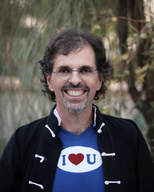 I am concerned about the fate of men. Yes, I mean adult males. The gender with which I have identified has had a poor showing of late. On a daily basis, men in positions of power are being “outed” for their boorish sexual and aggressive behavior—mostly but not exclusively directed towards women. When we look carefully at the men who are running our governments, corporations, and religious institutions, we find plenty of despots but precious few leaders. Almost every day in the U.S., a desperate man enters a public place, heavily armed, and opens fire on other members of his community. Men commit 90% of all homicides and 77% of all suicides. They are also three times as likely as women to be murdered and nine times as likely to end up in a State or Federal prison. Your first reaction to all this might be: Let’s not throw a pity party for men when they have been handed so much power! Because of that power, the fate of men is the fate of our planet. And we must all be concerned when we empower individuals without preparing them properly for the responsibilities that such power entails. As Abraham Lincoln noted, “Nearly all men can stand adversity, but if you want to test a man’s character, give him power.” Having graded thousands of exams in my life, I can say that the vast majority of men in power would earn a failing grade on this test. Why is that? My sense is that our world lacks a clear sense of what it means to be a man. How do we define a man? In a time when the question of gender has become far more complex, having a penis or an XY genotype is simply not enough. We now know that gender is a social construct. The clothes we wear, the length and style of our hair, the activities we enjoy, and the ways in which we interact with other men and women, are all shaped by family, community, and culture. We see plenty of evidence every day that women can enjoy and succeed at work and leisure activities that were once considered the exclusive domain of men. And even the role of men in family life has been called into question at a time when one in four children is being raised without a father. While conventional gender roles crumble and collapse, we are left to wonder: What should a boy know by the time he becomes a man? I feel strongly that manhood is about giving. In the sexual act, a man may give himself to his partner in the most intimate way possible, inserting himself into the one that inspires his love and passion. Yes, men are capable of being receptive, too. Giving and receiving are equally important capabilities, and neither is the exclusive domain of one gender. I just mean that men are biologically and spiritually disposed to give themselves fully—to their lovers, friends, families, and communities. Albert Einstein said, “Try not to become a man of success, but rather try to become a man of value.” To me, a man of value is a selfless servant. He understands that power can only be constructive when it is wielded for the benefit of others. At a time when the actions of an individual have global consequences, we have no choice but to redefine success and value in terms of the greater good. In the past, men in power have often operated under the assumption that “he who dies with the most toys wins.” This assumption has never been grounded in truth; now we see how destructive a philosophy it really is. The rules of the game have changed. Our common survival depends on a new conception of manhood: “He who gives himself most freely wins.” A man’s value can only be measured in terms of how he benefits the world. I can only think of one test of manhood that has any significance at this juncture in human history. It is the answer to a single question: Is the world better off because of you? In the past, too many men have failed this test. If humanity has any hope of a future, we must do everything in our power to make sure that every man—and every woman—passes this test with flying colors.
1 Comment
 I just came across an article, “Why Creative People Sometimes Make No Sense,” which discusses the paradoxical nature of creative individuals. The article cites the work of one well-known researcher who identified 10 paradoxes observed in people who are considered creative. From the standpoint of Deep Creativity, these apparent contradictions make a great deal of sense. So, we will take a closer look at a few of them, starting with I call the Paradox of Passion: Creative individuals have a great deal of energy, but they are also often quiet and at rest. Creativity is not the exclusive domain of a few special individuals. Each of us has been granted the gifts from which creativity arises. Perhaps the most important of those gifts is passion. I know that you are passionate about something, even if you have yet to identify that passion and give it a name. The individuals that we call “creative” have not just done that; they have given themselves to their passion and thrown themselves entirely into the creative experience. And what is passion, after all, but the energy of desire? If you are passionate about anything, it energizes you. Your passion drives you every day. It may be the reason you jump out of bed in the morning, eager to get started on the adventure of the day. That adventure begins when you immerse yourself in the activities and experiences you enjoy. If your passion involves creativity, then the magic happens when you “lose yourself” in the act of creating, which means that your attention is so absorbed in what you are doing that all else disappears from your awareness. Passion breeds single-mindedness. People who are passionate about creativity may lose track of absolutely everything when they are engaged in the creative act, including: social obligations; mundane chores and responsibilities; bodily needs like food and sleep; time and space; and even their sense of self. For moments, hours, or even days at a time, their attention is consumed entirely by the creative experience. Passion also breeds quiescence, which is the ability to silence the mind entirely. As I explain in Deep Creativity, if you fix your attention on one thought, that will lead you eventually to a condition of “no thought.” In the mental silence that ensues, you connect most intimately with the one and only source of your creativity. That source abides fully in the present moment. In order to create, you must live this moment to the max. Whatever you have been in the past or will be in the future has no bearing. Creativity happens when you give yourself entirely to the experience of the present: Here and Now, Baby! Time is not a factor in creativity because the creative experience transcends time. This is something that psychologists and neuroscientists who write about creativity have failed to grasp. For instance, the late great Oliver Sacks misidentified time as an essential element of creative breakthroughs. Yet, he would have recognized that most such breakthroughs happen instantaneously. That is why we talk about “Eureka!” moments. Those who claim that some kind of waiting period is needed for creativity to arise need to answer one simple question: What exactly are you waiting for?  Listen. I know you’re busy. But it’s time to stop, look up from your endless pile of work, and make a change. What we are doing right now is self-destructive. Most of us were taught to keep our heads down, mind our own business, work hard, and be responsible. But in doing that, we are supporting a structure that is severely broken. So, we might as well stop. If our efforts are contributing to a system that is harmful—violent, unsustainable, and unjust—we have no choice but to unplug from it. Let’s find new ways to support ourselves and support each other. The status quo just won’t do. Not anymore. This week, an alliance of 15,000 scientists from around the world issued a dire warning. In a letter to humanity, they wrote, “Soon, it will be too late to shift course from our failing trajectory, and time is running out.” These scientists cited climate change, deforestation, mass species extinction, ocean “dead zones,” and lack of access to fresh water as problems that are likely to bring down human civilization. Add to those problems: war, economic and social injustice, the potential for nuclear annihilation, and the prevalence of tyranny and oppression. Like it or not, we are complicit in this state of affairs. As long as we just keep doing what we have been doing up to now, we are contributing to the demise not just of our own species but of millions of others. So, where do we go from here? I offer this three-step plan:
We can do this. We must do this. We owe it to those who came before us, and to those who may never have a chance to follow us because of our carelessness and inaction. Now is the time to ask ourselves: What will be my legacy? Unless we change course immediately—both individually and collectively—the answer will probably be: Nothing. After all, who will be left to inherit the Earth?  It is no coincidence that Deep Creativity is emerging at this crucial juncture in the history of our nation and our world. Today, more than ever, we need to understand the enormous creative power at our disposal so that we can leverage it wisely. Either we act creatively to bring about a new era of peace, sustainability, and balance on this planet, or we bear witness to mass extinction, the destruction of livable habits, and the collapse of human civilization, Many of us who took part in Tucson’s All Souls Procession last Sunday encountered the intriguing sign shown here. Certainly, the sign is provocative. But is there any truth to it? Could it be that that 2017 marks the end of our nation as we have known it? Here are three reasons to think that this great democratic republic has come to an end:
What is a profiteer? It is anyone who places profits above all else, including the common good, the welfare of others, and the concerns of future generations. We now have a government of, by, and for profiteers. The evidence is everywhere: Q: Why do we not have a national healthcare plan? A: Profits are being made from every illness and injury. Q: Why do we not have a ban on assault weapons? A: Profits are being made from every act of violence and terror. Q: Why do we not have limits on carbon emissions? A: Profits are being made from the poisoning of our atmosphere. The takeover of our government happened in stages. You can tell the story as well as I can. Now that the profiteers rule our country, they are dismantling every form of government regulation on their financial dealings and profits, including: consumer protection, fair housing, public education, and food safety. Meanwhile, military spending goes up, because injustice and inequality have to be enforced somehow. I am not proposing that we treat profiteers as the enemy. They are most certainly an adversary in our efforts to create a positive and productive future. But I see them as small children that have only limited moral development or foresight. A misbehaving child must be treated with both compassion and firmness. We adults are the ones who have to set reasonable limits on their behavior. It is also up to us to model the behaviors that they will need to emulate. This means abiding by the Seven Keys: detachment, compassion, serenity, unconditional love, humility, forgiveness, and selfless service (see The Chanter’s Guide for more details). It could also mean taking The Pledge. Like good parents, we seek to be authoritative but not authoritarian. There is a big difference. I envision the preschool teachers of the world to be the saviors of our species. After all, who knows better how to engage the attention of little children run amok and help redirect their energies in more positive directions? |
I want to hear from you! Please share your questions and comments. And sign up for my newsletter, where I will pass along the insights, ideas, and inspiration that come my way.
Contact me:Archives
November 2023
|

 RSS Feed
RSS Feed
